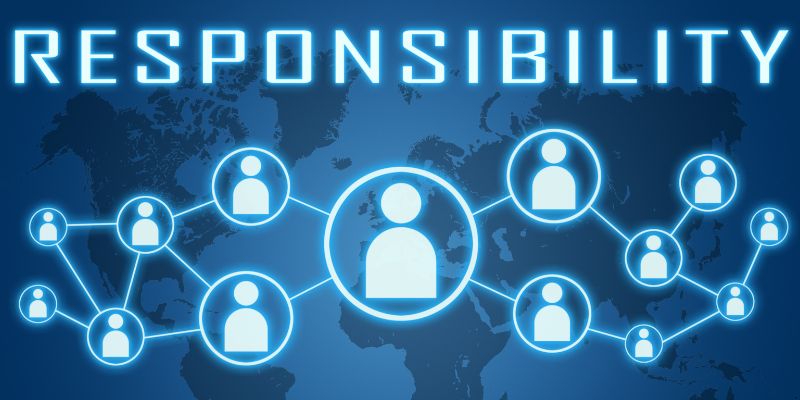Decision-Making: Unlock Success for Your Business

Decision-making was my Achilles’ heel as a business owner.
I’ll never forget the day I almost lost everything because of a poor choice.
That moment of near-failure ignited a fire within me to master the art of decision-making.
That moment led me to become the business coach I am today.
Now, I’m on a mission to ensure that entrepreneurs like you don’t have to face the same hardships I did.
My name is Gordon Grigg. I am a business coach from Nashville, Tennessee.
In this comprehensive article, I’ll reveal the secrets behind effective decision-making.
You will learn how my coaching can support you in making informed choices that will propel your business to new heights.
Let me guide you on a transformative journey that will change the way you approach decision-making forever.
What is decision-making?

Decision-making is a crucial skill for business owners.
In today’s fast-paced world, making the right choices quickly and effectively is essential.
I understand your decision-making challenges, and I’m here to help.
Let’s see common decision-making challenges.
Analysis paralysis
It’s easy to get stuck in analysis paralysis, weighing the pros and cons of each option. As your business coach,
I’ll help you break free from this cycle and make confident decisions.
Confirmation bias
We all tend to seek information that supports our preconceived beliefs.
I’ll help you recognize and overcome this bias to make more objective choices.
Overconfidence
It’s important to have confidence in your abilities. But over confidence can lead to poor decision-making.
I’ll assist you in finding the right balance.
Groupthink

Groupthink occurs when people within a group focus on consensus over critical thinking. This can lead to poor decision-making.
I’ll help you foster a culture of open discussion and independent thinking in your business.
Emotional decision-making
Decisions made on emotions can lead to negative consequences.
I’ll work with you to develop strategies for managing emotions and making rational choices.
Developing a decision-making framework

A solid decision-making framework is a foundation for making better choices.
And as your business coach, I’ll guide you through each step of this critical process.
Together, we’ll create a clear, structured approach to decision-making.
We will ensure that your choice is well-informed and geared toward success.
Defining your objectives:
The first step in any decision-making process is to identify your objectives.
We’ll work together to clarify your business goals, both short-term and long-term, as well as your personal aspirations.
By clearly understanding what you want to achieve, you’ll be better equipped to make decisions that align with your vision.
Identifying your options:
Once your objectives are clear, we’ll explore all the options available.
This means coming up with ideas, researching, and working with your team to create a full list of possible paths.
I’ll help you weigh the pros and cons of each option, ensuring that every stone is turned on.
Evaluating the risks and opportunities of each option:

With a list of options in hand, we’ll dive into a thorough analysis of the risks and opportunities associated with each choice.
This crucial step will give you the information you need to make an informed decision.
I’ll offer my expert advice and insights, drawing from my years of experience in the field. This will help you understand each option’s potential consequences and rewards.
Making a decision and taking action:
My goal is for you to understand your objectives, options, and associated risks and opportunities.
When you know them, you’ll be ready to make a decision.
I’ll support you as you choose the best path forward, helping you navigate any uncertainties and challenges that may arise.
Once the decision is made, we’ll work together to create an action plan and execute it effectively.
Reviewing and learning from the decision-making process:

The final step in our decision-making framework is to review the outcome of your choice and learn from the experience.
We’ll assess the results and identify lessons to be learned.
Finally, we will discuss how these insights can be applied to future decision-making scenarios.
This continuous improvement process will empower you to grow as a leader and make even better choices in the future.
Throughout our collaboration, I’ll be there to provide support, guidance, and expert advice. I will help you make the best possible decisions for your business.
Tools and techniques for better decision-making
Throughout my coaching, I’ll introduce you to various tools and techniques. They will help you improve your decision-making abilities.
SWOT analysis:

A SWOT analysis is a strategic planning tool. It helps you assess your business’s strengths, weaknesses, opportunities, and threats.
As a business coach, I’ll guide you through this process. This involves identifying your company’s internal strengths and weaknesses. At the same time, you will realize external opportunities and threats.
This comprehensive understanding will enable you to make informed choices. They will align with your objectives. Also, they will capitalize on your strengths while addressing areas of improvement.
Decision matrix:
The decision matrix is a technique I use to help business owners rank and compare different options based on specific criteria.
We will create a matrix visually representing the most suitable course of action. We can do it by assigning numerical values to each option and criterion,
This systematic evaluation helps you identify the best decision based on the factors most important to your business.
At the same time ensure that your choices are grounded in data and strategic reasoning.
Scenario planning:
With scenario planning, I help you envision different potential future situations.
Also, you will explore how your business would respond. This approach allows you to consider various outcomes.
You can prepare for potential challenges and opportunities.
By being adaptable and resilient, you can make better decisions. Also, you will set your business up for success, regardless of the circumstances.
Cost-benefit analysis:

A cost-benefit analysis is a valuable tool to help you compare the potential costs and benefits of different decisions.
By quantifying and comparing the advantages and drawbacks of each option, you can gain valuable insights into the best course of action for your business.
As your coach, I’ll help you conduct a thorough cost-benefit analysis. We will ensure that your decisions consider both short-term and long-term implications.
Mind mapping:
Mind mapping is a visual technique that can help you organize and analyze complex information.
It makes it easier to see the connections between ideas and make informed decisions.
In this way, you can better understand the relationships between different factors. You will assess their impact on your decision-making process.
As a business coach, I’ll guide you through the process of creating effective mind maps. This can improve your critical thinking and problem-solving skills.
The role of intuition in decision-making:

Data and analysis are essential. But sometimes, your intuition can play a valuable role in decision-making.
As a business coach, I’ll help you find a good balance between logic and instinct, so you can make well-rounded decisions.
You can improve your decision-making ability by trusting your intuition and gut. You will make choices that better align with your values and vision for your business.
The long-term benefits of better decision-making

Invest in the development of your decision-making skills. This can have a significant impact on your business’s long-term success.
Some of these benefits include:
Increased confidence
As your decision-making abilities improve, you’ll feel more confident in your choices. This leads to more assertive and effective leadership.
Improved adaptability
You’ll be better prepared to handle unexpected challenges by learning to make better decisions. You can pivot your business when necessary.
Higher employee satisfaction and retention
When you make well-informed decisions, your employees are more likely to feel valued and engaged. This leads to higher levels of satisfaction and retention.
Enhanced business performance
Ultimately, better decision-making will improve business performance, including higher profitability, growth, and overall success.
Conclusion

Are you ready to level up your decision-making skills and transform your business?
As a seasoned business coach, I am here to help you navigate the complex decision-making world.
I will empower you to make well-informed choices that drive your business forward.
Let me guide you through assessing risks, weighing options, and confidently making the right calls for your organization.
Together, we can help you improve your leadership skills, make your employees happier, and improve your business overall.
Don’t let uncertainty hold you back any longer.
Take the first step towards better decision-making by scheduling a complimentary discovery call with me today.
Let’s unlock your full potential as a successful business owner.
To learn more about my coaching services and how we can work together, please visit https://gordongrigg.com or contact me directly. I look forward to hearing from you and helping you achieve your business goals.
Call (615) 630-9114, or email me at gordon@gordongrigg.com to reach me.
Decision-Making: Unlock Success for Your Business Read More »





















































































